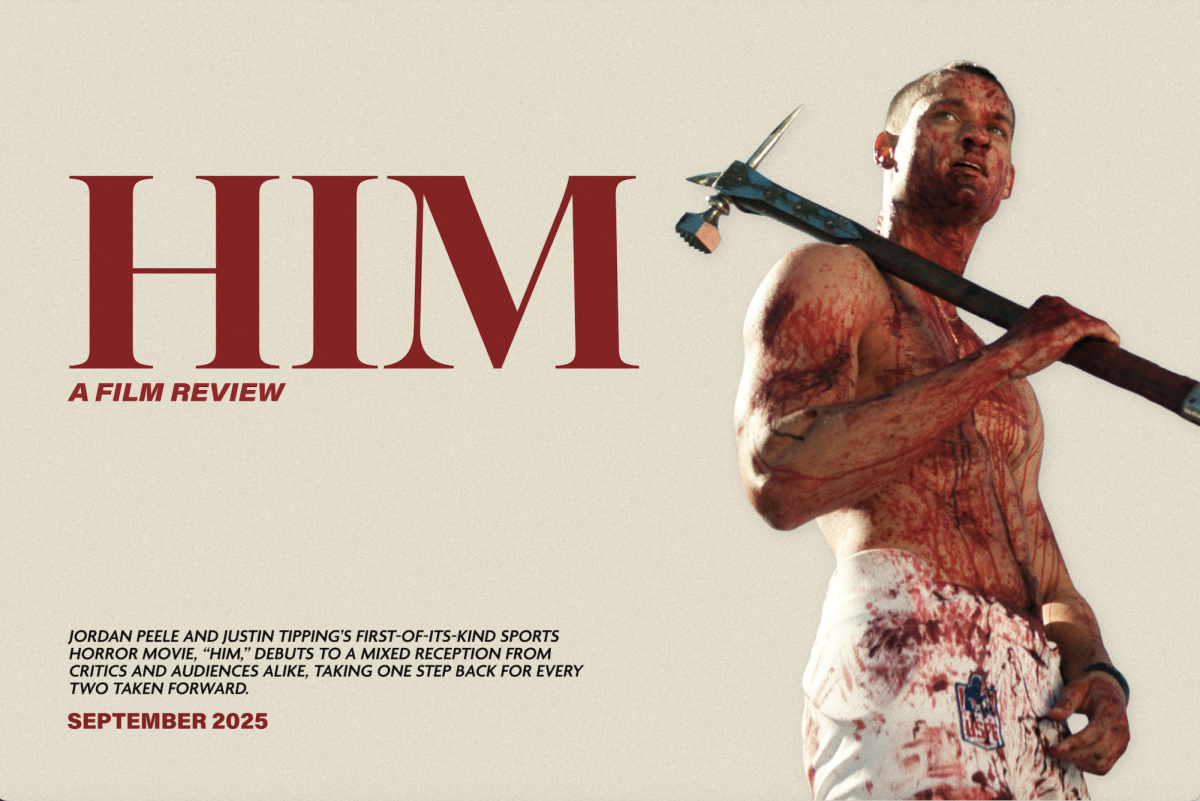On the evening of July 6, 2021 in Cannes, France, the lights shone down on a five-minute standing ovation honoring the festival’s commencement film: “Annette.” The star of the film, Adam Driver, lit a cigarette during the prolonged applause, according to Insider, seemingly pleased with the reception to his newest production.
But when the movie hit Amazon Prime Video on Aug. 20, it left viewers with conflicting opinions. Even with the acting powerhouse that is Adam Driver, “Annette” falls short in just about every aspect, leaving it as an easily skippable movie.
“Annette” is the newest film from French director Leos Carax, and it stars prominent actors such as Adam Driver, Marion Cotillard and Simon Helberg. Carax, known for his visual artistry, dark love stories and cinematic peculiarity, went all out on this musical romantic-drama.
The film follows the married duo of stand-up comedian Henry McHenry (Driver) and opera singer Ann Defrasnoux (Cotillard). After their whirlwind romance, the two become parents to an unusual daughter named Annette. Unfortunately, Annette’s arrival unfurls a tale of violence and heartbreak, all while intertwined with original music by the band Sparks. Even though “Annette” has a great plot, the movie itself leaves much to be desired.
Over the last few years, Driver has cemented himself as one of Hollywood’s most talented actors. One of the few somewhat-glowing parts of “Annette” was Driver’s performance as the tragic and vain Henry. His entire performance is packed with dark humor, deranged outbursts and heavy solemnity. During several scenes, Driver pushes the boundaries of sanity and creates a character that evokes a little fear in the audience.
However, singing is not one of Driver’s talents, and that is abundantly clear in “Annette.” Driver’s vocals lack emotion or melody in a manner that is similar to Cole Sprouse’s singing in “Riverdale.” While Driver may receive some nominations for this role, it’s not an upstanding-enough performance to warrant watching, and it proves that musicals are not his niche.
“Annette” is the newest addition in Carax’s lineup of so-called visually attractive films that border the lines of old Hollywood glamour and pure bizarreness. The film’s 141-minutes show a weaving of dozens of different aesthetics, styles and genres, such as horror, Shakespearean tragedy and indie. Throughout the movie, the balance of these elements is uneven, confusing and appears like the work of an amatuer filmmaker, instead of reflecting Carax’s decades worth of experience.
The film’s poster, which features the lovers dancing amidst a raging storm at sea, seemed intriguing to many audiences. However, the actual scene in the film did not fulfill the vision of whimsical darkness the poster promised. Some were expecting a “La La Land”-inspired scene with Tim Burton elements, but it presented as a half-baked, terribly-executed mess. With the advanced computer generated imagery technology that we have right now, viewers would expect the waves to at least look realistic, but that was not the case. None of the few scenes that had great visuals were very astounding, and they didn’t make up for the rest of the film’s below-average cinematography.
Undoubtedly, the worst part of “Annette” is its music, which is concerning since it’s a musical. The songs were immensely repetitive, one of the worst examples being Driver and Cotillard’s duet of “We Love Each Other So Much,” in which they repeat the title words without many other lyrics. The vocals in this song are reminiscent of the singing in “The Nightmare Before Christmas,” but without much emotion. Unfortunately, this musical theme recurs throughout the entire film. The orchestral music was the only good music in the film, but the singing often ruined it. “Annette” would’ve had much more potential if it had dropped the musical component and focused on being a romantic drama.
Another issue in the film was the romance between Henry and Ann. For a couple that are supposed to be “star-crossed lovers,” the film fails to display aspects of their relationship that would constitute a love on that level, instead focusing on the sexual aspects of it. Their aforementioned duet was a poor way of conveying how deep their love is.
A glaring reason as to why their romance was unbelievable stems back to the extreme lack of development or complexity in Cotillard’s character. Ann doesn’t stand out, and her few personality traits are contradicted by poorly thought-out actions in the film. The Accompanist, a man that led Ann’s orchestra, was the only likeable character in the film besides Annette. But his entrance in the film was later than it should’ve been, especially seeing as Helberg gave the only consistently well-done performance in the entire movie.
Having been the namesake of the film, the audience would expect Annette to be the main star of the show. Annette was marketed as being an incredible child that changed her parents’ lives forever, but the film makes it clear that Annette isn’t the catalyst for what happens to her parents. Her parents and their choices are more detrimental to Annette than the other way around. Annette is a background character that doesn’t contribute much to the story except for having the movie named after her, and providing cringy singing that nobody wanted.
As the credits rolled, I found myself the happiest I had been in the entire movie because I didn’t have to sit through any more of it. “Annette” had so much potential with its award-winning cast and enticing plot, but it tried to be so many things that it lost all shape and substance. Driver’s performance had fantastic moments that were overshadowed or ruined by his off-tune singing. The “musical” lacked complex or interesting songs and featured a main cast with little to no singing abilities.
“Annette” may pick up several awards, but it’s not a must-see… or even a should-see.
Edited by Elise Mulligan, [email protected]








